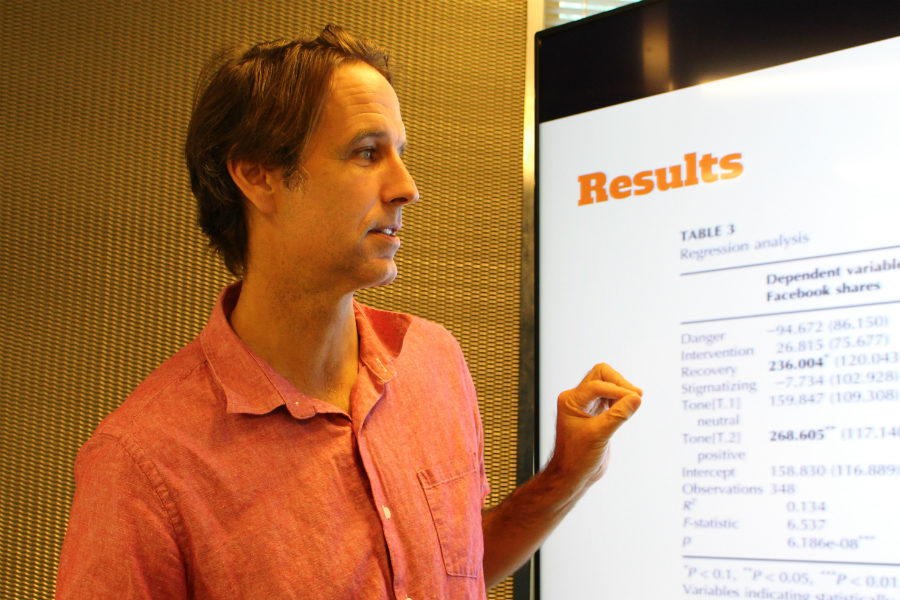BY JASMINE BALA
Staff Reporter

News stories that deal with mental health-related recovery and treatment are shared much more frequently than stories about mental health and violence, according to new research by a Ryerson University journalism professor.
The study by Gavin Adamson examined the content of articles dealing with mental health and how they were shared across digital platforms such as Facebook and Twitter.
“There’s sort of this assumption that what bleeds leads in journalism,” said Adamson, who co-authored the report with McGill University’s Robert Whitley and Liam Donaldson, a research assistant at Ryerson. “It’s like this catchphrase. I don’t know who coined it, but it’s what the audience believes about journalism and it’s sometimes what journalists believe about journalism too.”
Adamson’s research, however, shows that this isn’t true where mental illness is involved. His examination of online news stories suggests that readers are less likely to share mental health-related stories about crime and violence than stories with a positive or neutral tone. The study finds that articles about recovery and treatment are shared 700 more times than other mental-health related stories.
Adamson said the violent themes that are often present in stories about mental illness are a concern for health researchers because the accounts can affect people who are ill.
“This type of story might prevent people from seeking treatment or even admitting [to having] problems,” he said. “It means that mental illness is a problem and something that you want to keep secret because it is stigmatizing.”
But Adamson says that people with mental illnesses are no more violent than the rest of the population.
“People with mental illness tend to be victims of crime more than their perpetrators,” he said. “Often these people live on the street and they’re the ones that are having the violence done to them. So, there’s a horrible irony in the effect of news, you know, because it just tells sort of the opposite story.”
Previous research has shown that the link between criminality and mental illness occurs in up to 50 per cent of all coverage of the topic, while less than 20 per cent of all stories deal with treatment and recovery. This remains true despite the results of Adamson’s study that suggest readers are less likely to share news articles that stigmatize mental illness.
Adamson said he does not know why the data turned up this way. A limit of the study is that he did not survey news readers about why they share what they share online.
But he speculates that readers are more likely to share recovery and treatment stories because many of them are directly affected by mental illness.
“It’s something that everyone cares about. They aren’t particularly inclined to be excited by bad news about people in distress and in acute phases of their mental illness where something horrible might happen,” he said, “but they are interested in sharing stories that communicate their sympathy about their own situations, about their family’s situations, about their friends’ situations. That is my hunch.”
The research team analyzed all the stories related to mental health that were generated by three different newsrooms in Canada between Nov. 13, 2014 and Nov. 13, 2015. To measure audience engagement, web-reading metrics such as time-on-page, page views, social sharing and referrals were considered.
Adamson argues that digital news is always changing and can be used as a way to end the stigma surrounding mental illness.
“Google adds these emergency services when you type in the word ‘suicide.’ Why can’t newsrooms?” he said. “Why can’t newsrooms have boiler plate sentences about mental health and mental illness? They can be put into the back end of their websites. WordPress could have a system where you could drop in basic background on mental health and mental illness into every news story that includes it.”
